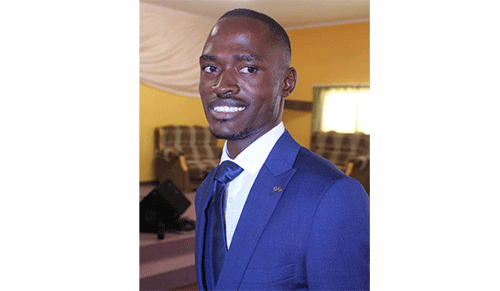Wiliam Shikudule
It is that stressful time of the year again for every learner and or student. Even if you have been in school for the past 10 or 15 years, writing exams is one of those academic endeavours that you will never get used to. The majority of learners and students wish that writing exams was never part of their academic assessment, which unfortunately can’t be ignored because our education system revolves around this aspect.
Being an academician myself, I am intrigued to share my little knowledge/tips on how to effectively prepare for exams, so sit back and watch the show.
First and foremost, I would like to start by saying that if you want to master your schoolwork you must:
Eat the ugly frog first
It is a natural human instinct to resist doing hard tasks, let alone studying a very hard subject; we all prefer studying the easy subject first. Studying the hardest subject first is recommended because you have the most energy and concentration when you first begin working, which will help you attack the difficult work, fatigue will not set in and you are also mentally relieved and happy when it is done. This gives you confidence about your remaining work. It reinforces positive feelings towards your ability to get other work done. You will be far less likely to delay the completion of your work once the most difficult tasks are completed.
Prepare way far before the exams
Most of us got used to the idea of only studying when we are told that there is a test or an exam coming up. This is the top ingredient of poor performance if not failure. We all have a multi-store memory model, which is a structural model composed of three separate stores with information passing between stores in a linear way. These three stores are sensory memory, short-term memory, and long-term memory. Allow me, please to explain what each one of these means:
Sensory memory is the first entry point of any information that comes to you. It comprises the five senses – hearing, touch, vision, smell and taste. These memories are stored for a few seconds at most (stored only for as long as the sense is being stimulated). This simply means that we cannot rely on this type of memory for academic purposes.
The next memory model is short-term memory. After receiving information and consistently rehearsing it, the information will be passed to the short-term memory store. However, it is still vulnerable to being forgotten due to limited duration or being displaced by new incoming information due to limited capacity. So, you can still not rely on this model of memory, although for students who study only to pass and not to remember the knowledge long after the exams, this might work for them.
The last and most reliable memory model is the long-term memory store. If rehearsed and processed deep enough, e.g., through elaborative or maintenance rehearsal and active learning, the information then passes to the long-term memory store which has unlimited capacity and unlimited duration depending on the level of processing of the information received. This is why they say “practice makes perfect”. When you are practising (studying), you are simply moving the information from sensory memory to the short-term memory and further studying moves it to the long-term memory. That is why you are still able to remember certain things you were taught in primary school.
Customise your notes to make them more personal
It was never said that the notes given by the teacher or lecturer are the final best. You can always change them into a style that suits you. If you are a visual learner, you can make drawings in your notebook to make things make sense to you. This is one of the best ways to move the information from sensory memory all the way to the long-term memory. If you are an auditory learner, you might need to spend most of your time watching educational videos on YouTube to enhance your memory retention of information.
Make sure you eat a good breakfast and/or lunch on the day of the exam
Biologically speaking, your brain will not focus on dispersing information if the body is crying for food or liquids. Nourishment is the body’s number one priority. You have enough distractions to overcome from the external world, do not create distractions for yourself internally.
Seek help from those around you
If you are unable to see your current teacher, which is very common during exam times, seek out another teacher who teaches that subject. Find out who the A-students are in the class and find out what is working for them. You’re both getting the same lecture and material, but they’re getting better grade. Find out what habits, tricks and techniques keep them on top of their grades. Get tutoring in the library after school from 15h00 to 16h00, if need be.
Believe in yourself
Though I presented this one last, it does not make it less important as compared to the ones mentioned earlier. Believing in yourself is very essential and it is parallel to your academic achievements. You cannot get an A* in mathematics or chemistry if you believe that these two are rocket science.
There is more that could be said on this topic, but I believe that the tips narrated here are very essential and they will help you master your exams.
Blessings and all the best for your exams.
Until we meet again, I am out.
* Wiliam Shikudule is the founder of TutorMasters and academic adviser.
For more info, e-mail him at tutormastser30@gmail.com



